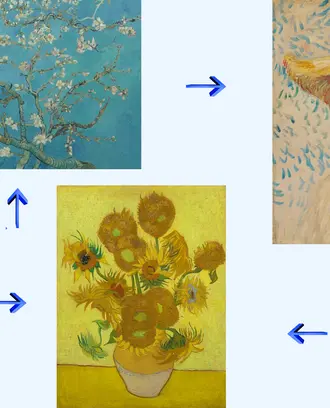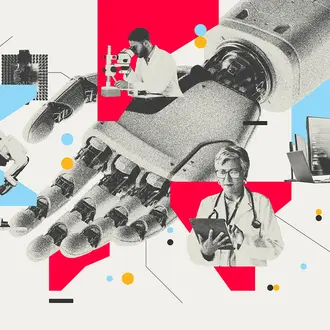MIT Sloan professor of management Joseph Doyle says 30 percent — upwards of $1 trillion — of health care spending is wasted. But that doesn’t have be the case. Doyle is studying the comparison between teaching and community hospitals, holistic care, alternative pharmacy programs, and something called “hotspotting.”
Why investing in management research is important to your work
“Businesses that follow the data, that collect data on how their operations are running and take that data seriously — that could be done in a qualitative way, it could be done in a quantitative way — but [that data] give you hints about how to improve your business.
“Then, testing whether those ideas work with increasingly randomized trials within businesses, so Google runs at least 10,000 experiments a year, where they're testing what works and what doesn't on their website; we can see some of the most successful companies having a data-driven approach in that way and improving their businesses.”
Data that matters
“Hotspotting is an idea that's been forged by Dr. Jeff Brenner at the Camden Coalition of Health Care Providers. Jeff won a MacArthur Genius award a few years ago. He's an extremely smart person who loves data and trying to use data to improve health care systems.
“One thing he can do with his data is figure out who the super-utilizers are, hotspot either the area of the city or actually just the patients themselves who drive health care spending.
“About half of spending in the United States is driven by 5 percent of patients. And from one year to the next, about 40 percent of people who are in that top category will again be in that top category the next year. We know we have some ‘frequent flyers’ to the hospital or to the emergency room. And an idea is that if we could figure out how to target those patients and improve their health and improve their use of the health care system in a more efficient way, then we could actually improve their lives and save a lot of money at the same time.”
What should you focus on in the future?
“Some things will improve lives and cost money. They might be worth it. Some things will cost money and not improve lives, and those are the things that we would call waste. This idea of really testing what works and what doesn't, I think is important for models to then pick up ‘oh, we should be doing more of this, because it does save money,’ versus other programs that don't work. Then we can start to prune those away.”
What to read after you listen
In health care data, a gap between point of care and everything else
Patients key to making sense of medical data
When health care gets a healthy dose of data




